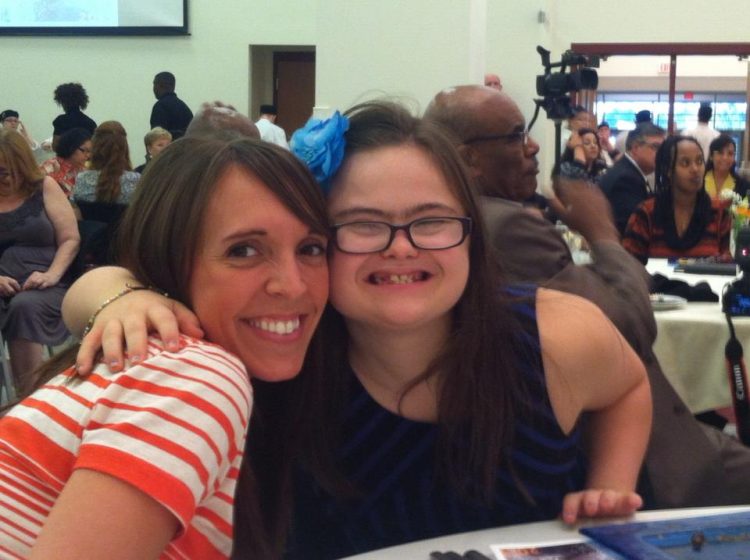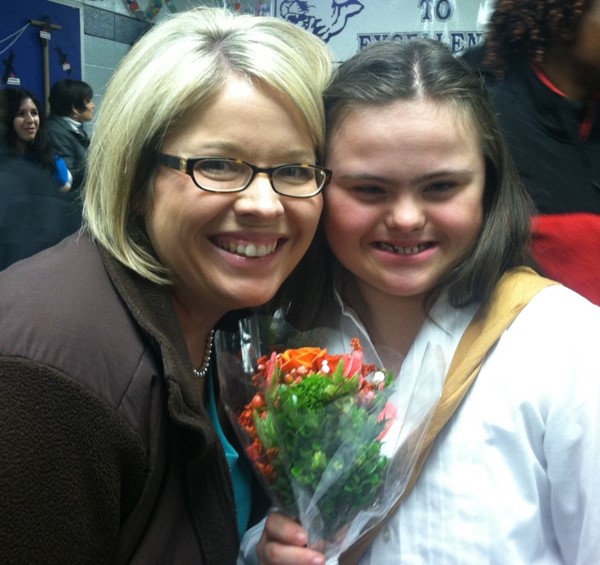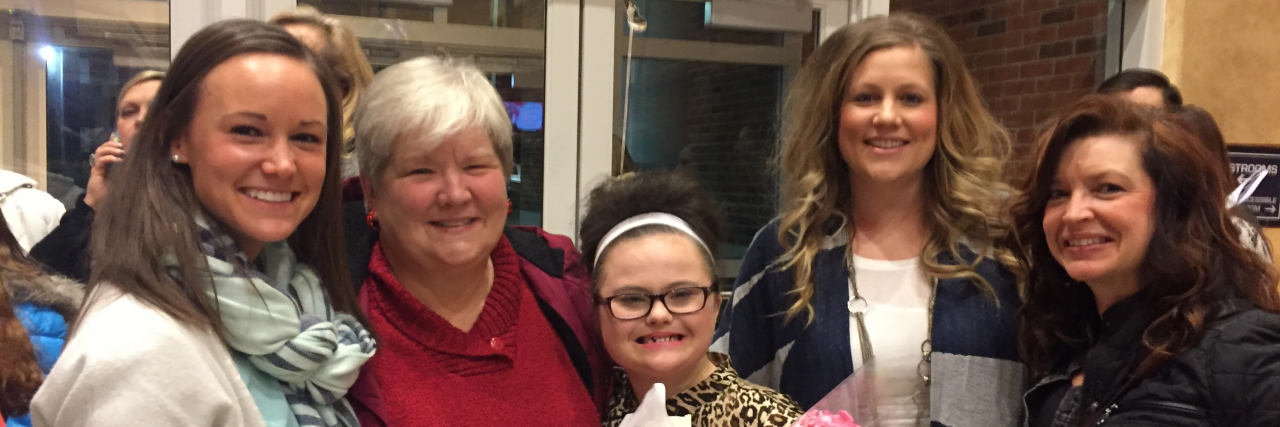May 2-6 is National Teacher Appreciation Week. My daughter Rachel is 22 years old and has Down syndrome. While she has completed her formal education, showing teacher appreciation is always appropriate. I believe there are some common threads among the good teachers she had that helped make inclusion work for Rachel. I wanted to share some of those common threads.
First, I want to say a heartfelt thank you to those who teach and specifically to the teachers who taught Rachel. That includes the support and related services personnel like paraprofessionals, speech, occupational and physical therapists, social workers, and counselors. I believe teaching is the highest calling. I am thankful many of you choose to teach and so many of you have been good teachers for Rachel.
Throughout her life, Rachel has had many teachers. While some were definitely a better match than others, she had exceptional instruction and supports. I believe Rachel’s pursuit of her dreams and ability to navigate the world as a young adult is a direct result of the excellent early intervention services she received from Special Kids and Families and the Harwood Center. And it is a direct result of the outstanding teachers she has had. When people inquire about Rachel’s academic experiences, I try to make a conscious effort to tell people that Rachel had some really good teachers in her school endeavors. Rachel’s educational experience had plenty of bumps and train wrecks, but Rachel did have many educators who invested in her and believed in her.
I believe that good teachers teach all children. Many of Rachel’s best teachers didn’t have specialized “special education” training. However, they believed that all children could learn and that you find a way to teach them and find a way to discover what they have learned. Accepting that everyone’s learning journey is unique is important.

Communication is probably the area of greatest frustration for many parents. One of the most important aspects of Rachel’s positive experiences was the teachers and others who communicated openly. In my blog Communication 101, I talk about the fact that if you do not tell us, we do not know. Sometimes a simple email or phone call takes care of a misunderstanding or clarifies otherwise confusing information. On that topic, communication with paraprofessionals really does help. Paraprofessionals are often the ones who are writing or supervising the writing of the back-and-forth communication and one text, phone call or email can prevent an emotional meltdown from a parent.
A willingness to admit what they do not know. I loved it when Rachel’s English teacher called me before school started and said, “I need your help. I want to teach Rachel, but I am not sure that I know how.” She had never taught a student with Down syndrome. Rachel had several teachers brave enough to say that out loud. We can work with that. We can help, and we can do this together.
One of Rachel’s teachers told me she was thrilled and terrified when she found out Rachel would be in her class. She knew her from being around her at school, knew us because of our volunteer efforts at school but she had never taught a child with Down syndrome. She told me that she was afraid she would fail Rachel and us. They taught each other and a whole classroom of friends that year. At the end of the year, this teacher of 15 years told me that Rachel was the most memorable student she ever had and changed her as a teacher and her expectations for all students in a positive way.
Another common thread for success is teachers who remember Rachel’s IEP is not a list of suggestions. It is a legal contract. There is information in her IEP to help her to maximize her potential, but it also provides information in the form of accommodations and modifications to help teachers know how to best meet her needs. I don’t like having to be “That Parent,” but if teachers don’t follow Rachel’s IEP, sometimes I had to be “That Parent.”
Think outside of the box. Rachel’s class was reading “A Christmas Carol.” Her teacher sent me an email (open communication) and said, “I did something different with Rachel on the “Christmas Carol” test. From her class participation, I knew she knew the information, and I thought she could take the same test as the other students. I knew she could tell me the answers, so I didn’t give her a modified test. I gave the same test as the other students, but I let her give me answers orally. She made a 14/15!” The teacher may have been even more excited than we were.
Embrace our idea of inclusion. Inclusion isn’t just about the classroom teaching. It is about the process. It is about the classroom interactions. It is about others seeing Rachel and others with intellectual disabilities as capable. The long-term rewards for all students are immeasurable. I suspect the results will include more jobs for individuals with disabilities and the ability to interact with clients and managers who have different strengths, preferences, and abilities. I suspect there is a group of people who will better navigate the course of life because of their experience in inclusive classrooms and communities.
Sharing our high expectations. Our best partners in the journey have shared or learned to share our high but reasonable expectations. I have saved emails and notes from many we have worked with who say that working with Rachel and seeing what can happen when you try new things, when you don’t accept the status quo but instead set high expectations has changed the way they educate. Rachel’s team members often told stories of what the other students gain from Rachel. Others have their own little party when they see and hear her demonstrate what she is learning. As a side note, when you see your child demonstrate knowledge they learned from a teacher years before, drop that teacher a note. It means a lot to them.
Again, I want to say thank you to the many educators who have shaped Rachel’s life and have joined us on this journey. They are now part of Rachel’s personal “Friends of Rachel Club.” Many, if not most, continue to follow her progress and be involved in our lives at some level.
Final note: People tell me they stress about what they will do to recognize/honor/thank their child’s teachers. When you have a child with an IEP, that group is bigger than the average student, and it can be expensive. We did different things for Rachel’s teachers/team from serving an annual appreciation meal to gift cards, plants, and homemade treats. I did a little research and one of the number one things teachers told me they wanted? A card from the student/family. Just say thank you! They will appreciate being appreciated.


